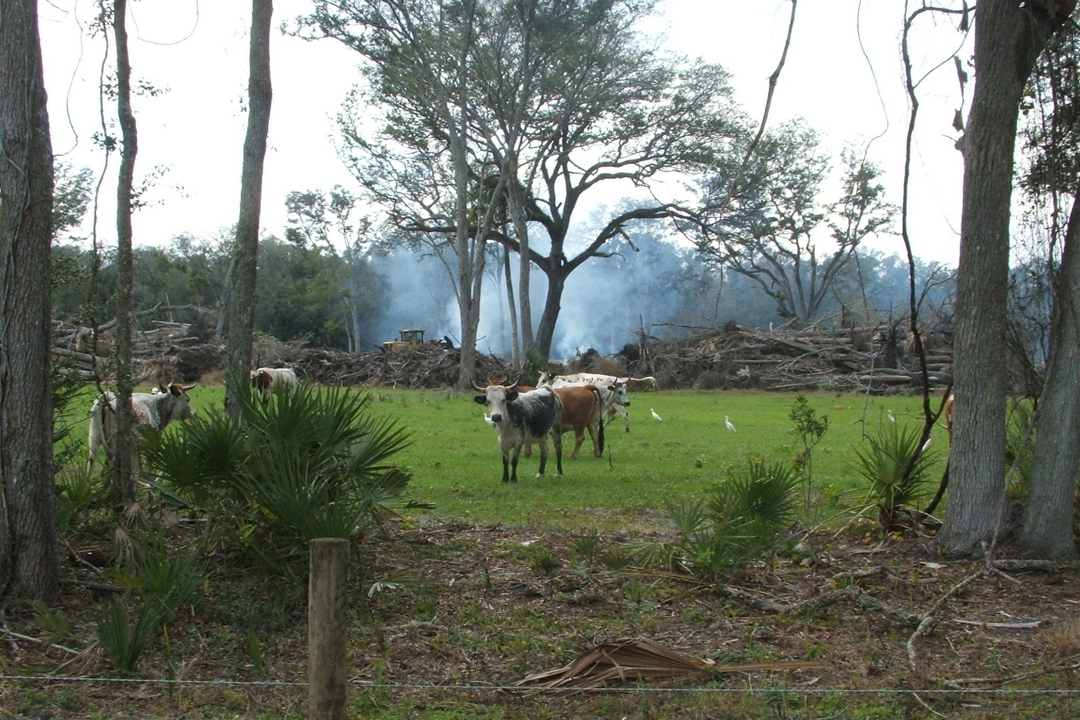Essential pandemic partners
Real Life Science: Environmental Science
Randolph Femmer, USGS. Public domain. Taken March 15, 2016 in Florida.
Forest cover being removed for cattle pasturage and development. Smoke from bulldozed trees is visible in background with cattle in the foreground. Deforestation has multiple environmental impacts, including exacerbating climate change, altering hydrology and water quality, reducing biodiversity, and increasing human exposure to disease vectors.
Environmental science demands well-rounded specialists who integrate many fields when addressing and solving real world issues. These include biology, ecology, chemistry, mathematical modeling, statistics, geology, geography, geospatial sciences, imaging sciences, urban planning, policy, economics, and social science (just to name a few!).
Environmental scientists are essential partners during disease outbreaks since their work with other scientists and professionals is critical to understanding the origins of infection. The exposure and spread of disease can be heavily influenced by concurrent issues like climate change and human encroachment into natural areas. It is important to study these patterns and inform communities on how they may preserve and protect natural systems and thus protect themselves from disease.
“Processes like climate change are going to unleash a host of unexpected environmental impacts, such as the spread of diseases into areas previously not at risk,” said RIT professor Karl Korfmacher. “Environmental models and monitoring programs are going to be key areas to help us mitigate these impacts.”
As an environmental scientist, you might find yourself working in federal, state, or local government agencies, consulting firms, or non-profit organizations. Some employers of environmental scientists include:
- US Environmental Protection Agency (EPA)
- National Oceanographic and Atmospheric Administration (NOAA)
- US Geological Survey (USGS)
- US Department of Agriculture (USDA)
- Environmental Science Research Institute (ESRI)
- The Nature Conservancy (TNC)
- NY Department of Environmental Conservation (NYSDEC)
- Environmental Consulting Firms (Bergman, Stantec, Cadmus)
Earning an environmental science degree from RIT gives you the problem-solving skills needed to be successful in this field. Students are encouraged to participate in undergraduate research experiences under the guidance of faculty mentors and encouraged to apply for summer research internships.
RIT is preparing the next generation of environmental scientists at the Thomas H. Gosnell School of Life Sciences.








